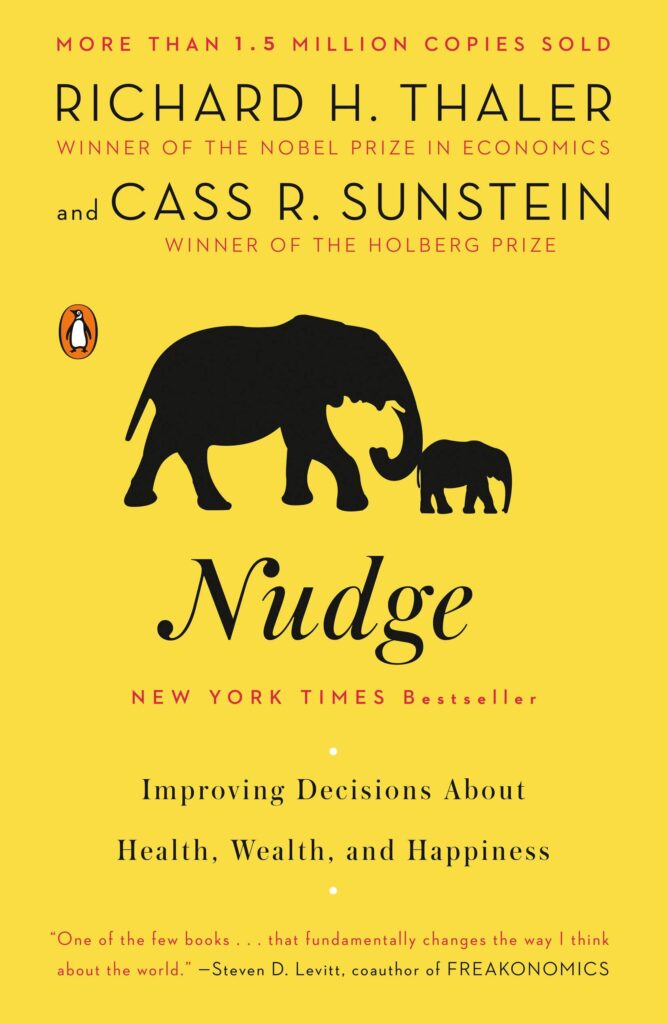Nudge: Improving Decisions About Health, Wealth, and Happiness
Richard H. Thaler, Cass R. Sunstein

Every day we make choices—about what to buy or eat, about financial investments or our children’s health and education, even about the causes we champion or the planet itself. Unfortunately, we often choose poorly. Nudge is about how we make these choices and how we can make better ones. Using dozens of eye-opening examples and drawing on decades of behavioral science research, Nobel Prize winner Richard H. Thaler and Harvard Law School professor Cass R. Sunstein show that no choice is ever presented to us in a neutral way, and that we are all susceptible to biases that can lead us to make bad decisions. But by knowing how people think, we can use sensible “choice architecture” to nudge people toward the best decisions for ourselves, our families, and our society, without restricting our freedom of choice.
Key Summary
“Nudge: Improving Decisions About Health, Wealth, and Happiness” is a book by Cass Sunstein and Richard Thaler, published in 2008. The book introduces the concept of “Nudge Theory,” which argues that small, subtle changes in the way choices are presented can have a big impact on decision making. The authors use behavioral economics and psychology to show how nudges can be used to encourage people to make better decisions in areas such as health, finance, and the environment.
Takeaways
1. Nudge theory: small changes in the way choices are presented can have a big impact on decision making.
2. Behavioral economics and psychology can be used to encourage people to make better decisions.
3. Nudges can be used to promote healthy behavior, such as exercise and eating well.
4. Nudges can be used to help people save money and make better financial decisions.
5. Nudges can be used to encourage people to be more environmentally conscious.
6. Nudges can be designed to be both effective and non-coercive.
7. Nudges can be used in a variety of settings, including government, business, and healthcare.
8. Nudges can be used to promote fairness and reduce discrimination.
9. The effectiveness of nudges depends on the specific context and the target audience.
10. Nudges should be designed and evaluated based on ethical considerations, including privacy and transparency.